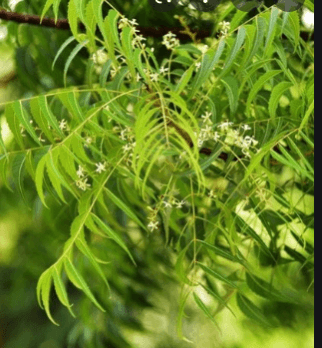Extract from the bark of the neem tree, indigenous to India, may help treat and reduce the spread of coronavirus, a team of international researchers found.
Neem, used for over thousands of years, is known for its pesticidal, insecticidal, and medicinal properties.
The bark extract has helped treat malaria, stomach and intestinal ulcers, skin diseases and many other diseases. People also use it in hair and dental products.
The study, led by a team from Indian Institute of Science Education and Research, Kolkata, shows that components of neem bark may target a wide range of viral proteins, suggesting its potential as an antiviral agent against emerging variants of coronaviruses including SARS-CoV-2.
The Indian researchers tested it in animal models and showed that it had antiviral properties against coronavirus.

Using computer modeling, the researchers predicted that Neem bark extract will bind to the SARS-CoV-2 spike protein at various locations, preventing virus entry to host cells.
Further, a team at University of Colorado, US, tested the Neem bark extract in SARS-CoV-2 human lung cells. It proved as effective as a preventive drug for infection and also decreased virus replication and spread after infection.
The findings are reported in the journal Virology.
"The goal of this research is to develop a Neem-based medication that can reduce the risk of serious illness when someone is infected with coronaviruses," said study co-author Maria Nagel, research professor in the department of neurology and ophthalmology at the varsity's School of Medicine.
"We hope that scientists won't have to continuously develop new therapies every time a new SARS-CoV-2 variant emerges.

"Just like how we take penicillin for strep throat, we envision taking the Neem-based drug for Covid, allowing us to resume our normal lives without fear of hospitalisation and death," Nagel said.
The scientists believe this research could guide new antiviral therapeutic efforts to combat the ongoing pandemic, while holding out the promise for treating new coronavirus strains.

















